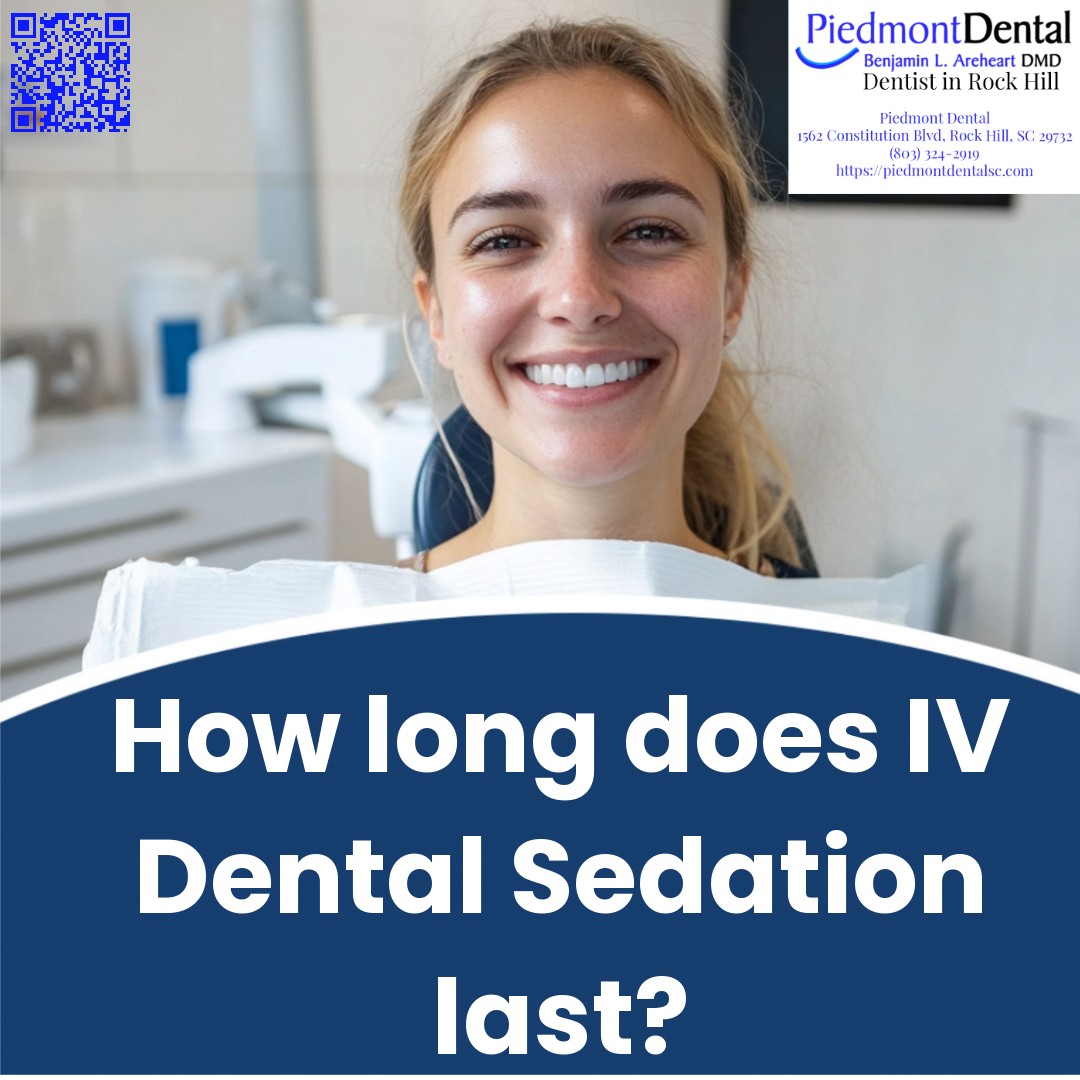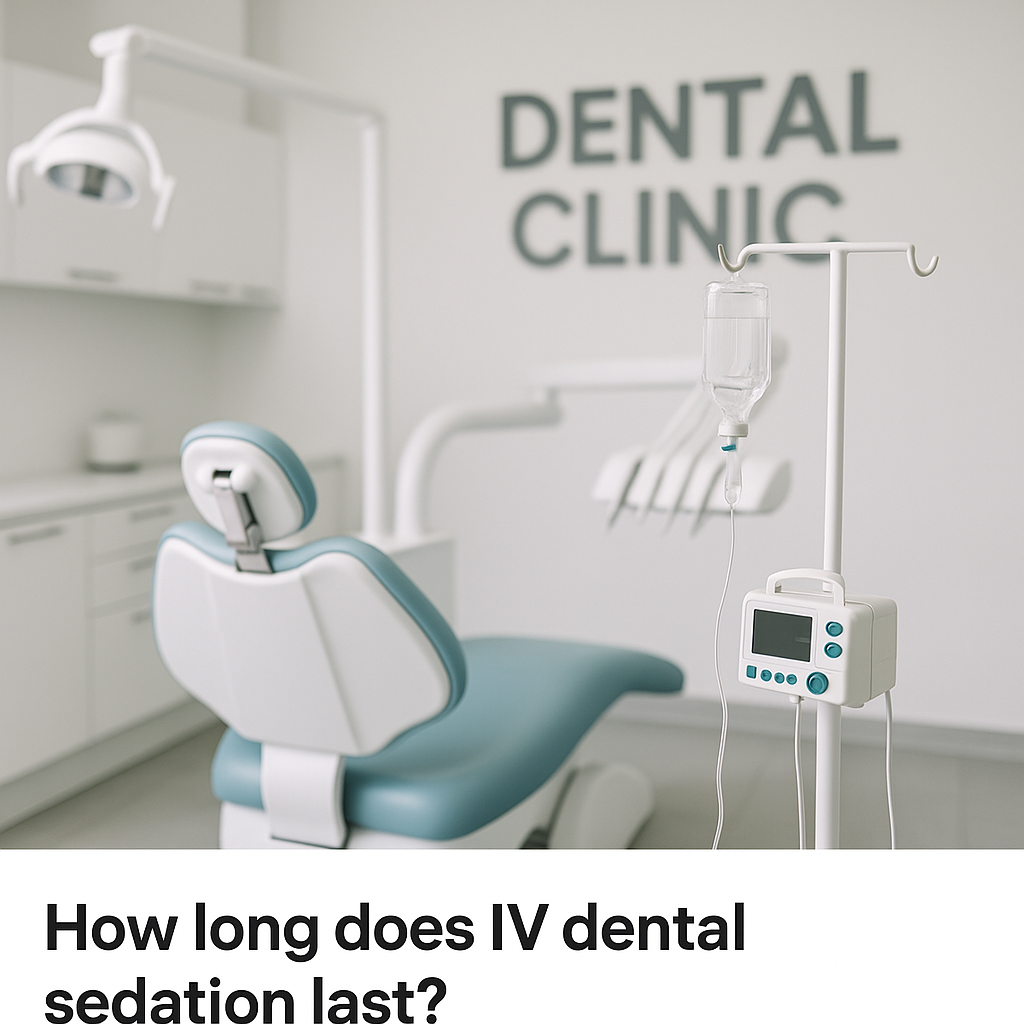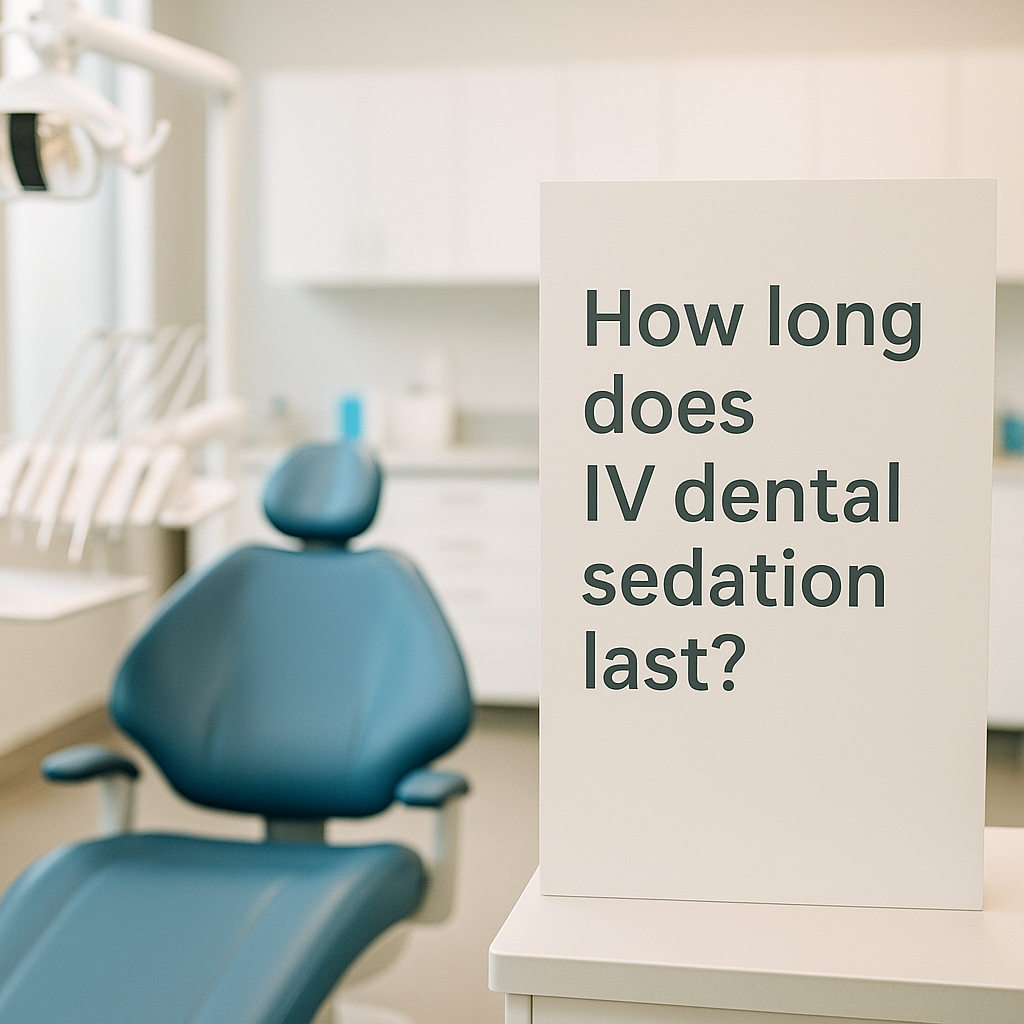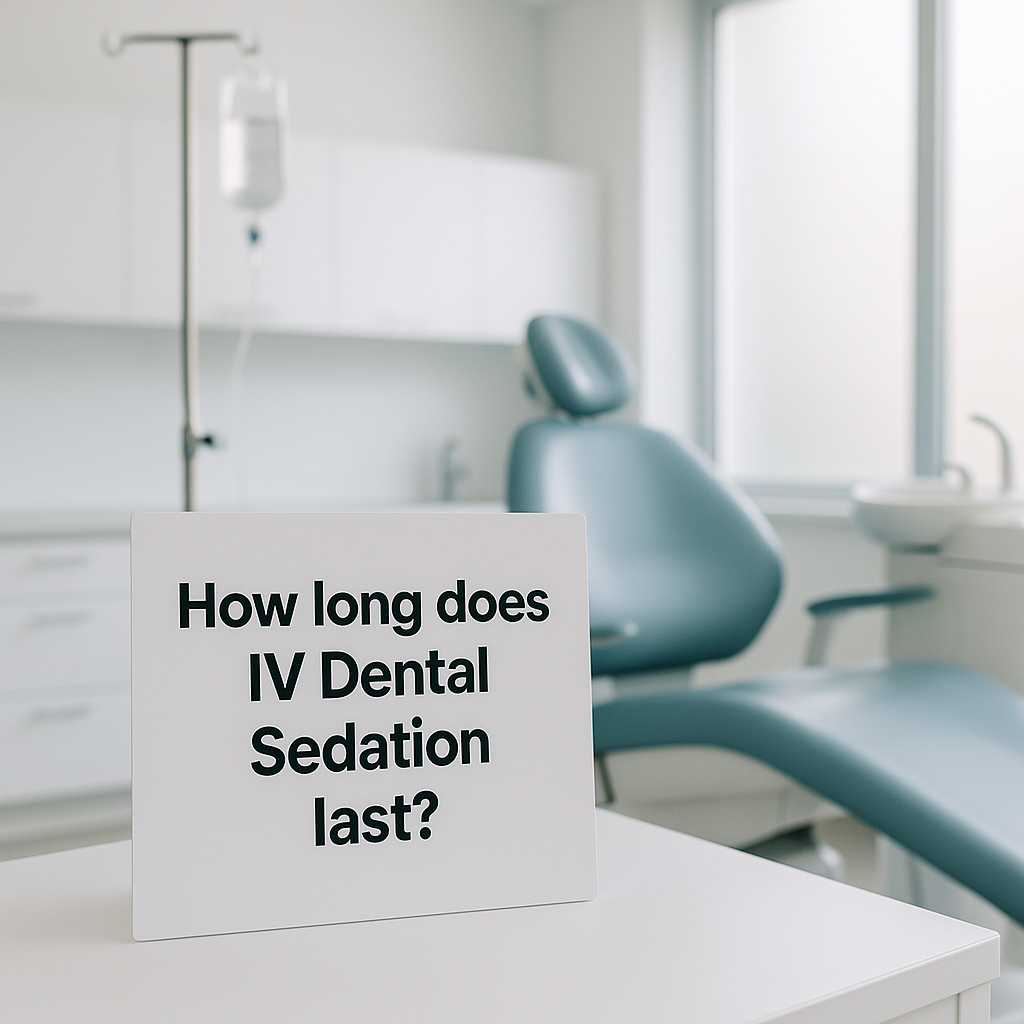How long does IV Dental Sedation last?

Understanding IV Dental Sedation
IV dental sedation has gained popularity as an effective solution for managing anxiety and discomfort during dental procedures. This technique is especially beneficial for patients who may feel apprehensive about dental work, require extensive treatment, or have a low pain threshold. Unlike oral sedatives, which can take time to take effect, IV sedation delivers medication directly into the bloodstream, allowing for rapid onset of sedation. This method is performed in a controlled environment where patients are closely monitored to ensure their safety and comfort throughout the procedure.
How long does IV Dental Sedation last?
The duration of IV dental sedation can vary widely based on various factors, including the type of sedative used, the patient’s individual response, and the complexity of the dental procedure. Generally, IV sedation can last anywhere from 30 minutes to several hours. For residents of Rock Hill, SC, understanding these timelines can help set realistic expectations for their dental visits and recovery time.
Factors Affecting Duration
Several key factors can influence how long IV dental sedation lasts:
- Type of Sedative Used: Different sedatives have distinct durations. Common medications utilized in IV sedation, such as Midazolam, typically provide sedation for about 1 to 2 hours. However, other agents may have shorter or longer effects based on their pharmacokinetics.
- Patient’s Metabolism: Each individual metabolizes medications at a different rate, which can be influenced by age, weight, overall health, and even genetics. For instance, younger individuals and those with higher metabolic rates may recover from sedation more quickly than older patients or those with slower metabolisms.
- Dosage Administered: The amount of medication administered can also affect the duration of sedation. Higher doses typically result in prolonged sedation effects. Your dentist will determine the appropriate dosage based on your specific needs and the complexity of the dental work being performed.
- Procedure Length: Longer procedures may require a continuous administration of sedation, which can extend the duration of its effects. For example, a lengthy surgery such as wisdom tooth extraction might necessitate prolonged sedation, while a simple dental filling might not.
What to Expect During Recovery
After the procedure, patients are usually monitored as the sedation wears off. It’s common to feel drowsy or groggy for a period, and full recovery can take anywhere from a few hours to a full day. Here’s what you can generally expect during recovery:
Immediate Effects
Upon regaining consciousness, most patients report feeling relaxed and may have little to no memory of the procedure itself. However, some immediate effects may include:
- Drowsiness
- Disorientation
- Dry mouth
Post-Procedure Care
It is crucial to have a responsible adult accompany you home after receiving IV sedation, as you may not be in a condition to drive or operate machinery. Patients are generally advised to refrain from such activities for at least 24 hours post-procedure. Additionally, you might experience:
- Fatigue
- Mild headache
- Nausea
In Rock Hill, many dental practices recommend scheduling your appointment at a time when you can relax afterward, allowing your body ample time to recover from the effects of sedation.
How Much Does IV Dental Sedation Cost?
The cost of IV dental sedation can vary significantly based on several factors, including the dentist’s experience, the complexity of the procedure, and the specific location of the dental practice. In Rock Hill, SC, patients can expect to pay anywhere from $140 to $430 or more solely for sedation. It’s important to note that this cost can escalate depending on additional elements such as:
- The specific medications administered
- The length and complexity of the procedure
- Any additional monitoring or care requirements
As a general rule of thumb, it’s prudent to budget approximately 20% more than the initial estimate to account for any unforeseen expenses. Always discuss costs upfront with your dental care provider to ensure clarity and transparency. Many practices in Rock Hill also offer financing options to help manage these costs effectively.
Is IV Dental Sedation Right for You?
IV dental sedation is not a one-size-fits-all solution; it is essential for your dentist to evaluate your health history, anxiety levels, and the nature of your dental procedure to determine if IV sedation is appropriate for you. Here are some considerations:
Who May Benefit from IV Sedation?
IV sedation may be particularly beneficial for:
- Patients with severe dental anxiety or phobia
- Individuals undergoing lengthy or complex procedures
- Those with a low pain threshold
- Patients who struggle to remain still for extended periods
If you’re a Rock Hill resident who finds dental visits daunting, discussing IV sedation with your dentist can be a pivotal step toward a more comfortable and positive experience.
Potential Risks and Side Effects
While IV sedation is generally considered safe, there are potential risks and side effects that patients should be aware of:
- Allergic reactions to the sedative
- Respiratory issues, particularly in patients with pre-existing conditions
- Cardiovascular complications, which may arise in individuals with certain health issues
Discussing any pre-existing health conditions with your dentist is crucial to ensure the safest approach to your sedation plan. Dental offices in Rock Hill typically have protocols in place to effectively manage these risks.
Alternatives to IV Dental Sedation
If IV sedation doesn’t seem right for you, several alternatives are available. Options include:
- Oral Sedation: This method involves taking a sedative pill before your appointment. While effective, oral sedation generally takes longer to take effect, and you may still experience some anxiety during the initial stages of treatment.
- Nitrous Oxide: Also known as laughing gas, nitrous oxide provides a mild sedative effect and wears off quickly after the procedure, allowing patients to return to their normal activities shortly thereafter.
Each sedation method has its benefits and drawbacks, and your dentist can help you choose the best option based on your specific needs and comfort level. In Rock Hill, many dental practices offer comprehensive consultations to help you make an informed choice.
Conclusion
IV dental sedation serves as a valuable tool for ensuring a comfortable dental experience, especially for those facing anxiety or requiring extensive dental work. Understanding how long IV dental sedation lasts and what to expect can alleviate concerns and promote a better overall experience. If you’re considering IV sedation for your next dental visit, don’t hesitate to reach out to local dental practices in Rock Hill for more information and personalized advice. They are equipped to guide you through the process and answer any questions you may have.
Frequently Asked Questions (FAQs)
1. How long will I be groggy after IV sedation?
Most patients feel groggy for a few hours after their procedure. Full alertness may take up to a full day, so it’s important to have someone drive you home.
2. Can I eat before my appointment with IV sedation?
Your dentist will provide specific instructions, but typically, it’s advised to avoid solid food for a few hours before your appointment. Clear liquids may be permitted, but always follow your dentist’s guidelines.
3. Is IV sedation safe for everyone?
While IV sedation is safe for many, it may not be suitable for individuals with certain medical conditions. A thorough evaluation by your dentist can help determine your eligibility.
4. How do I prepare for my appointment?
Preparation involves following your dentist’s guidelines, which may include fasting, arranging for transportation, and discussing any medications you are currently taking to ensure a safe experience.
Related Resources
- IV Sedation Dentist in Rock Hill
- Understanding Different Types of Dental Sedation
- Preparing for Your Dental Appointment with Sedation



